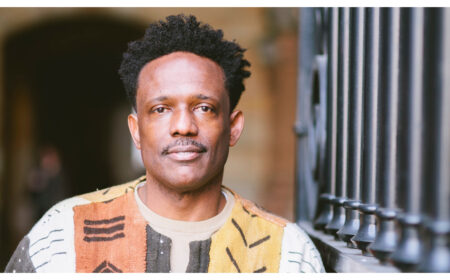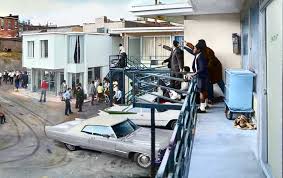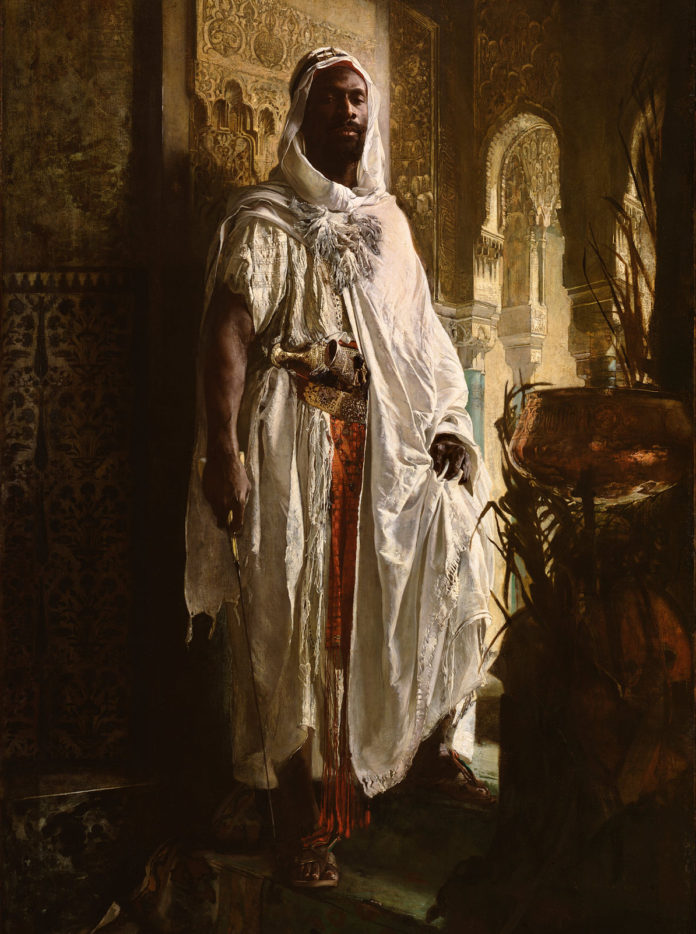The European Problem: Or Africa’s 3,700-Year Struggle To Civilize Europe
Since the humble beginnings of civilization in the Land of Pwene (Punt) some 12,000 years ago, to the great innovations of Nubia and Kemet, our Ancestors, the Founders of Civilization, have always been willing—even against great travail—to share their wisdom liberally without fail, even with people of very distant lands. One such group of people who came routinely to Africa to study the ways of the Founders were the Greeks. Our Ancestors believed that the only way to maintain perfect balance between themselves and the world around them—a world that was locked in a whirlpool of primitivism, backwardness and violence; a world that only sought to run inexorably to chaos—was to share their science and philosophy. To maintain perfect balance—what we still call Maat, The Perfect World Order—our Ancestors believed they had to share with the rest of the world the solid lessons of the making of civilization.
Kemet, for instance, had one foreign and domestic policy to which they poured libation every day: Maat. To the Founders of Kemet, Maat underpinned the entire goal of mankind in all aspects of life—socio-economic, political or religious. Maat was the philosophy and the religious ideal that made Africa unique. It set Her apart in the quest of man to achieve homeostatic balance with his environment. Even today, a firm understanding of most traditional African religions, for example Vodun, and most other traditional African systems of fractal government point back to this inescapable ideology, Maat.
It was certainly the goal that having introduced the rest of the world to the remarkable transformational lessons of making civilization, the world would become a better place for all humanity.
However, recent events in world history causes us to look back on some of the efforts of the Founders of Civilization and judge for ourselves whether they succeeded in their drive to bring civilization to the rest of the world, particularly Europe, and if not, whether there remains any hope at all for achieving Maat, The Perfect World Order.
The last few hundred years have been most worrisome. The over preponderance of violent wars fought back-to-back and genocides in which many people have been brutally enslaved, murdered and wiped off the surface of the Earth; the occurrence of two mechanical tribal wars in which two Atomic Bombs were dropped for absolutely no human reason and from which some still claim they had reached the Moon; the emergence of the fact of a fast warming planet due to primitive accumulation and the unrestrained consumption of limited resources; and the realization of a world still engulfed in perpetual warfare without end: all point to a chaotic world that has more than often plunged Africa Herself, and the descendants of the Founders, backwards into the brinks of utter and gross barbarism.
The world, as we know it today, could not be any further from The Perfect World Order that the Founders, our Ancestors, in Punt, Nubia and Kemet imagined. It behooves us to understand the 12,000 year history leading up to this current deplorable state and it is incumbent upon us to understand this history thoroughly so that once we have overcome the barbarism, we might not repeat the mistakes that birthed it.
The First Advance: Africa’s Cretan Attempt to Civilize Europe.
In this current atmosphere of crass savagery, it is important to make note of two previous attempts or waves of Africa’s effort to civilize Europe and bring about international peace and rugged advancement, in order that we might yet gain a deeper, more granular understanding of what the problem currently is, what is at stake and what might need to be done! These two previous attempts seem, in hindsight, all but exhausted to no avail.
Africa established the first civilization in Europe on the Greek island of Crete in 1700 BC (some 3,700 years ago), and the elite Greeks who lived there were primarily educated and trained in the African Temples of the Nile Valley (now formerly known as “universities,” as a result of Timbuktu’s later advancements in curriculum research).
The Greeks invariably passed on their acquired African civilization to the Romans who ultimately lost it to several bestial invasions of forest European tribes, spelling the first hiccup on the part of the Founders in Africa to bring civilization to large parts of Europe.
This failure on the part of Rome to hold ground against barbarism and backwardness—which nonetheless came at the heels of the fading identity of the Black Etruscans who had founded the Empire—marked a patent miscarriage of establishing Maat in the rest of the world outside Africa. It also brought with it untold setbacks spelling larger paradigm shift implications about how African civilizations thought about and imagined the pursuit of the Principles of Maat or the Perfect Word Order.
The catastrophic fall of Rome ushered in Europe’s plunge back into primitivism. The Barbarians in name and in deed will come to loiter about the European terrain during the Pale Ages—what they call the Middle Ages—for five centuries. Over this period, multitudes of warring European tribes from the Caucus were pushed deeper and deeper by the invading Huns away into Western Europe, further and further away from civilization and from any prospect of ever being re-civilized by Africa!
The Second Advance: Africa’s Moorish Attempt to Civilize Europe.
Shortly after those five centuries of Europe’s nosedive back into barbarism, the second African wave of bringing back civilization to Europe to restore Maat began, an earnest showing that the ideas of establishing The Perfect Word Order were still, by and large, recurrent in most African cultures.
The Moors of North Africa had begun to see the necessity to re-introduce civilization back into Europe and to forestall the fear of savage invasions that would plunge the world into utter violence. The tough belief in the unrelenting Principles of Maat that they had inherited from the Ancestors spurred the political will to embark on a second attempt to civilize Europe. In 711 A.D., the Moors conquered the marauding hordes of lawless barbarians who had turned Europe into a cesspool of primitivism after what the Greeks and later the Etruscans had managed to achieve with African aid, and once again established another civilizing mission into Europe, bringing the Pale Ages to its highfalutin brutish end.
Recent archaeology and scholarship reveals this remarkable Moorish advance into Europe. The Moors enforced civilization over Spain, Portugal and France for well over seven hundred years. They re-introduced mathematics, astronomy, art, and philosophy into Europe and quickly moved Europe out of the Pale Ages; out of the gloomy barbarism and into a Renaissance reminiscent of the former Greco-Kemetian attempt. The first western European mathematicians, scientists, logicians, linguists and historians were made here. In fact, according to Basil Davidson, during the eighth century there was no land “more admired by its [European] neighbors, or more comfortable to live in, than a rich African civilization which took shape in Spain.”
Differences and Similarities Between the Two African Attempts to Civilize Europe.
Having elucidated the two major African attempts to bring civilization to Europe it is important to also carefully shed light on the fact that though both The Kemetians and The Moors were enamored and inspired by the hope of establishing The Perfect Word Order, there were some marked differences in their approaches. The hope is that by contrasting both efforts we would gain a deeper understanding about the current state of affairs in an increasingly inhuman world.
With all the pomp and pageantry of the Moorish attempt to civilize Europe, there was something historically unique about this second African advance. Rather than a focus on the shared ancient African belief in establishing The Perfect Word Order through civilizing Europe, the Moors emphasized an even more demanding idea veering somewhat away from the principles of Maat alone, which their Ancestors had fully committed to some 2,000 years prior when they established the first European civilization in Crete. The Moors wielded a more demanding philosophy: Islam. In this, the goal was not only limited to establishing The Perfect World Order here on Earth, but also a commitment to the idea of transforming human nature itself in order to gain access to a Perfectly Ordered World in the afterlife.
It was not difficult to see how the Moors came to be Muslims, especially since Islam itself with its humble beginnings east of the Nile and the Middle East had become one of the transformative religious schools of thought, alongside Christianity and many other monotheistic religions, in African philosophy. Having traversed through time and space with a strong bent on a single Supreme Being, and no other accompanying Gods, Islam sourced its theological will to expression from the unparalleled genius of the scholars of Pharaoh Akhenaten of Kemet, who enhanced and promoted monotheism for centuries.
In the same way that Akhenaten’s monotheism represented a paradigm shift from the polytheist doctrines of Maat, which were central to most of Africa’s old religious ideas and philosophical outlook, the philosophies of Islam as an inescapable ingredient and a concomitant aspect of the Moorish civilization of Europe would represent a major paradigm shift in how African foreign policy was modified to not only preserve Maat at its core, but also to promote the individual quest to accessing a higher-ordered Maatocratic world that was theologically only imaginable in the afterlife. Much of the differences and similarities between the Greco-Kemetian attempt and the Moors’ quest to re-civilize Europe can be assessed from this point of departure.
Chiefly, instead of focusing on The Perfect World Order on Earth, the Moors also evangelized about the individual goal to attain salvation in a perfectly ordered world after death. Indeed, the second wave of Africa’s re-civilizing mission into Europe has often been referred to as the Muslim Civilization. In many parts of Europe at the time, Moor or Black or African and Muslim were more than often interchangeable. This new paradigm, un-willfully or willfully, and contrary to the sole Principles of Maat, placed the human as central to all outlooks on life. This ideology was part of a new wave of a human-centric doctrines newly taking root in Africa and the Middle East but which faced major debates.
However for the Moors, in theology and philosophy, in chemistry and mathematics, the Human, instead of the Human cum Nature (as proposed by Maatocratic religious doctrines), became the focus of the paradigm shift. For after all, the Supreme Being was only interested in the salvation of the Human, not in the preservation of Nature, per se.
The Moorish Struggle Against European Primitivism.
With this new shift in thinking about the world, the Moors ascended to great technical heights in every aspect of socio-economic life, technical heights that were arguably hitherto never realized in science and philosophy by their Ancestors and, perhaps, their cousins elsewhere on the continent. The Moors expanded educational institutions to reach more and more people in North Africa and southern Europe, while deeper and deeper into western and northern Europe, which had become more and more Christianized—except for a few educated members of royal families—almost the entire populations remained illiterate and primitive. European kings were practically innumerate!
The juxtaposition of the Moorish advance into Europe and European lifestyle is stark. I shall attempt to enumerate a few instances. At a time when the Moors lived in immaculate palaces all over Europe and built thousands of public baths to promote good hygiene among their subjects, the monarchs of Germany, France, and England fought against Moorish influence, convincing their subjects that cleanliness was an actual sin. These European kings believed that dirt was intrinsic to human development and they dwelt in big barns, if they could manage enough technical knowhow to erect them: barns with no windows and no chimneys, often with only a hole in the roof for the exit of firewood smoke from heating.
In the tenth century, the Moorish capital of Cordoba, for instance, was not just the capital of Spain but also the most important and most modernized city in Europe. Cordoba boasted a population of half a million and touted some of the first and finest street lighting, five hundred mosques, the most sophisticated hospitals in all of Europe (with running water and about fifty of them with the most renowned surgeons the sub-continent had ever known), and seventy libraries, one of which held over half a million books.
Notably, during this same era of the Moorish attempt to re-civilize Europe, the rest of the sub-continent was so immersed in primitivism that it took several hundred years of constant education, in many of the seventeen Moorish universities across southern Europe, for a few educated ones to manage to establish two universities of their own deeper into Western Europe. The founders of Oxford University, for example, were encouraged to form the institution after receiving a thorough education in the African universities in Spain. According to the United Nations’ Education body, the oldest university operating in the world today, besides the Sankore Madrasas of Timbuktu, is the University of Al-Karaouine of Morocco founded during the height of the Moorish Empire in 859 A.D. by a Black woman named Fatima al-Fihri.
To summarize, the immensity of the task of re-civilizing Europe involved The Moors marshalling a stunning amount of resources. In the realm of mathematics, the Moors introduced to Europeans concepts like the number zero (0), Arabic numerals, and the decimal system, training and educating Europeans in methods of problem solving with advanced novelty, accuracy, and alacrity.
And there’s no doubt that the Moors’ scientific re-civilization of Europe extended far beyond philosophy and the theoretical sciences. The flight polymath, Ibn Firnas, who in 875 A.D. made the world’s first scientific attempt to fly in a controlled manner, trained and educated several Europeans in the mechanics of flying. In global seafaring, Moorish advancements in navigational technology such as the astrolabe and the sextant, as well as their improvements in cartography and shipbuilding, which were made available to all of Europe, paved the way there for an Age of Exploration.
In no small measure of irony, the strongest evidence of African technical supremacy in the Age of Exploration comes from the pen of Christopher Columbus, the barbarian himself. In 1920, the American historian and linguist Leo Weiner of Harvard University, in his book Africa and the Discovery of America, explained how Columbus noted in his journal that Native Americans had confirmed that, “black skinned people had come from the South-East in boats, trading in gold-tipped spears.”
Is a Third African Attempt Possible?
The scale of the second African attempt to re-civilize Europe is clear. Moorish Spain not only collected and perpetuated the intellectual advances from Pwene, Nubia, Kemet, Crete and Rome, it also expanded upon those previous civilizations and their humble attempt to bring civilization to Europe. A number of ideas on which modern Europe now prides itself came to it from Moorish Spain: free trade across borders, diplomacy, etiquette, advanced seafaring, research methods, and key advances in chemistry. The Moors single-handedly lifted Europe out of the Pale Ages and paved the way for what Europeans now refer to as the Renaissance period.
But alas, what has become of the nature of this “renaissance”? What happened again in Europe, several centuries after the Moors had disappeared?
Over the past few centuries, with the re-emergence in the world today of utter violence by any means necessary, unending world wars (European aggression), terrorism, and an unsavory expansion of the ideology of primitive accumulation spread across much of the world outward from the deeper interstices of western European ideology and practice—which is even reaching into Africa Herself—namely, the Trans-Atlantic Slave trade, colonialism, imperialism and USAFRICOM, the nature—the success or failure—of the African attempt to bring civilization to Europe must be re-examined.
Pointedly, as Cheikh Anta Diop has once put it: what has been achieved in Europe since the Moors? Is it civilization or have the Europeans—in the same fashion as they stooped to barbarism during the Pale Ages because of the failure of the previous Greco-Kemetian attempt to civilize it—reverted to old fashioned mediocrity and inhumanity with an even more brutal desire? Has the technical civilization they have received from the Moors improved them as human beings or has it exacerbated their penchant for crass violence by way of their fixation on bomb-building and warfare? For how can we perceive of European/American militaries in their forever-preparations for unending wars, phantom wars, fake wars, and wars of unceasing aggressive offensive as any resemblance of a lasting influence of Moorish civilization, let alone a Greco-Kemetian one?
The key to understanding the increased and the more sophisticated European aggression and violence towards other people, towards other races, stems from understanding the nature of the European problem today in light of the two previous attempts by notable African civilizations to rescue Europe from utter barbarity.
Is There Any Hope to Re-civilize Europe Which Has Now Spread Across the World?
Having degraded Africa’s ability and will to re-civilize it, Europe is now set on a path of self-destruction. This is the inevitable goal of barbarism itself. The previous few centuries of Europe’s technologically violent onslaughts on African civilizations, ranging from the Napoleonic book-burning civilization-hating rituals in North and West Africa, to the terrorism of the Trans-Atlantic Slave trade, to colonialism, to imperialism and now neoliberalism, Europe has succeeded to do to Africa with Moorish technical prowess what it could not have done to Africa during the Pale Ages.
At this point only one hope remains if Europe and Europeans spread across the West are to regain some civilizational salvation away from barbarism. Only one hope exists: salvation can only come from the same people they brutally crucified on the cross, but who even in their suffering still managed beyond the odds to give the Americas the greatest love, the greatest music civilization that part of the world has ever known. If the West is to survive, Africa cannot help it in no certain immediate terms that she on two previous occasions has done. Perhaps, only Africans in the American diaspora, now spread across the West—through no fault of their own, and only as a result of Europe’s penchant for utter violence—are capable and situated with the particular interest and will to save the West from utter barbarism.
Africans in the diaspora may resurrect in the equal pomp and pageantry of the spirit of their forefathers and once again, in the same fashion as their distant cousins, the Moors, force back civilization into the descendants of the peoples of Europe, now plunging the vast expanse of the virgin territories of the Americas and the rest of the world into the erstwhile Pale Ages. One hope remains to save Europe, now spread across the world, from plunging back into complete and utter barbarism and carrying the entire world with it: the African resurrection in the Americas! We had better prayed for it.
To read more Click or Copy link:
http://grandmotherafrica.com/european-problem-africas-3700-year-struggle-civilize-europe/





